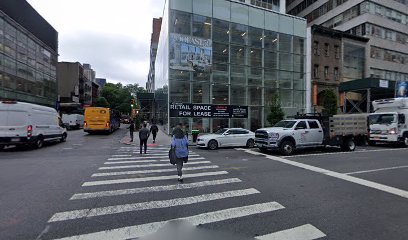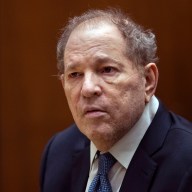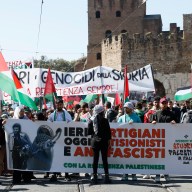TEGUCIGALPA, Honduras – Honduras’ interim leader on Tuesday urged citizens to vote in November elections, vowing that the election of a new president will show the world democracy thrives in the Central America country despite a July coup.
Campaigning began this week despite warnings from many Latin American countries that they will not recognize the outcome of any election until ousted President Manuel Zelaya is restored to power. Secretary of State Hillary Rodham Clinton, meanwhile, planned to meet with Zelaya on Thursday to show case U.S. support for the deposed president.
“We will be watched by many countries in the world,” interim President Roberto Micheletti said in a televised address. “This process will serve to categorically show that we appreciate democracy, that we are a people who want to live in harmony.”
He said the elections “are the only final and definitive solution to the political crisis.”
Soldiers flew Zelaya into exile at gunpoint on June 28. No amount of international pressure has persuaded the interim government to restore Zelaya to power, including the suspension of millions of dollars in U.S. military and development aid.
Micheletti insists Zelaya was legally removed from office by Congress for violating a Supreme Court order to drop efforts to change the constitution. Interim leaders have expressed hope that international interest in restoring Zelaya will fade with the Nov. 29 elections, which were scheduled when Zelaya was still in power.
Some of Zelaya’s allies fear that the strategy will work.
Venezuelan President Hugo Chavez said “it is difficult to believe at this point” that Zelaya will return to power.
“Not a single soldier has openly opposed the coup government. The candidates, the candidate of Zelaya’s own party have recognized there is a government there, that the elections are coming,” Chavez added in an interview Monday with state-owned Venezolana de television. “The carnival, the bombardment, the propaganda and publicity has already started.”
Most of Zelaya’s own Liberal party supported his ouster, accusing him of seeking to eliminate a constitutional ban on presidential re-election, as his Chavez and other Latin American leftist leaders have done. Zelaya denies that was his intention.
Liberal candidate Elvin Santos, a former vice-president under Zelaya, is one of two main candidates in the November elections. The other is Porfirio Lobo of the National Party.
“We have a real problem that only will be resolved when the people elect a new leader,” Lobo told The Associated Press on Tuesday.
Zelaya’s supporters, however, have persisted with daily demonstrations in the capital of Tegucigalpa. Thousands marched for three hours Tuesday in 66th protest since the coup. On Monday, protesters ripped down campaign posters in protest of the November elections.
Clinton will meet with Zelaya on Thursday to discuss “the best way forward on the situation in Honduras,” State Department spokesman Ian Kelly.
Zelaya has his allies complain the United States has not done enough to pressure the interim government, calling for trade sanctions and other measures that could cripple the Honduran economy, which is highly depending on exports to the United States.















